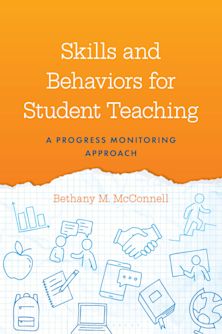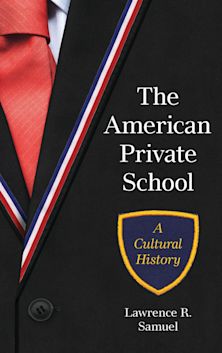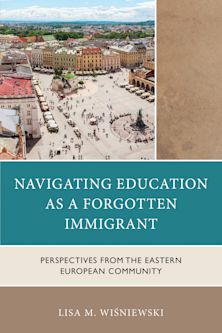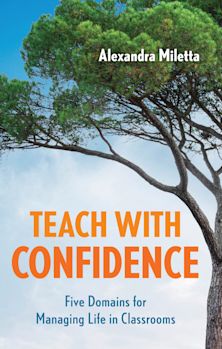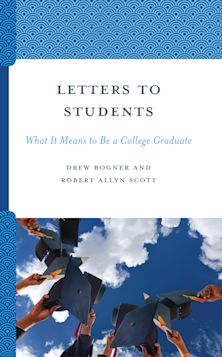- Home
- ACADEMIC
- Education
- Education - Other
- Writing with At-Risk Youth
Writing with At-Risk Youth
The Pongo Teen Writing Method
Writing with At-Risk Youth
The Pongo Teen Writing Method
This product is usually dispatched within 2-4 weeks
- Delivery and returns info
-
Flat rate of $10.00 for shipping anywhere in Australia
You must sign in to add this item to your wishlist. Please sign in or create an account
Description
This book describes a specific program for teaching and mentoring expressive writing by at-risk youth—a program that can generate transformative change in the teens, and generate significant new satisfactions for you. When young people write personally and creatively, it helps them to overcome challenges in their lives. They feel better, think more clearly, are more self-confident, and are better able to relate to others, including their helpers. This personal creative process is enriching and enlivening for everyone. It brings emotional clarity and meaning to everyone. It brings closeness, in addition to learning and growth.Welcome to the Pongo Teen Writing Method.
Table of Contents
Series Overview
Foreword
Preface
1. Childhood Trauma and the Benefits of Writing
2. Pongo, Openness, and a Unique Joy
3. The Special Role of the Writing Mentor
4. Poetry as the Expressive Medium
5. The Pongo Approach to Teaching Poetry
6. A Model Pongo Writing Project
7. Keeping Everyone Safe
8. Introducing Poetry to Youth
9. Overview of the One-on-One Process
10.Taking Dictation
11. Improvising Poetic Structures
12. Using Fill-in-the-Blank Activities
13. Overview of the Group Process
14. The Challenges of Group Process
15. Publishing Teen Poetry
Epilogue: Next Steps
References
Product details
| Published | 31 Jan 2014 |
|---|---|
| Format | Paperback |
| Edition | 1st |
| Extent | 192 |
| ISBN | 9781475802849 |
| Imprint | R&L Education |
| Dimensions | 222 x 154 mm |
| Series | It's Easy to W.R.I.T.E. Expressive Writing |
| Publisher | Bloomsbury Publishing |
About the contributors
Reviews
-
Writing with At-Risk Youth: The Pongo Teen Writing Method provides a roadmap for therapists, counselors, and teachers to help troubled adolescents transform their lives through poetry. Both wise and pragmatic, Pongo reminds us that healing is art; that listening, validation, and respect are core elements of therapeutic relationships; and that human connections underlie our most basic needs and our most rewarding experiences.
Jack McClellan, MD. medical director, Child Study and Treatment Center; professor, University of Washington School of Medicine, Seattle, Washington
-
Writing with At-Risk Youth: The Pongo Teen Writing Method makes a wonderful contribution to our collective response to youth affected by trauma and hardship. Facing up to trauma experiences and developing a new narrative is proven to work for recovery. Expressive writing is an amazingly powerful method of doing just that. This book helps youth to find their voice, learn their strengths, and give themselves hope for their future.
Lucy Berliner, MSW. director, Harborview Center for Sexual Assault and Traumatic Stress; clinical associate professor, University of Washington School of Social Work and Department of Psychiatry and Behavioral Sciences, Seattle, Washington
-
Richard Gold’s creativity, compassion, and empathy, coupled with his deep sense of the integrity of the human spirit, has allowed healing and restorative expressions to flow from adolescents who have experienced profound emotional traumas. The Pongo Method is essentially a way for these young people—many with severe emotional problems and some who have been ensnared in the juvenile justice system—to learn to communicate and think about their life experience through poetry and storytelling. Many are able to reframe horrific experiences and put some closure around “issues” that they have held back from feeling and thinking about. Although the Pongo “process” is not therapy in a traditional sense, it represents the essential elements of the most effective treatments and does this through a modality that youth can engage in with honesty and trust.
Eric Trupin Ph. D., professor and vice chair in the Department of Psychiatry and Behavioral Sciences, University of Washington School of Medicine
-
For even the seasoned teacher, working with traumatized children can be intimidating. Writing with At-Risk Youth: The Pongo Teen Writing Method not only inspires teachers to help these youth write poetry but also provides clear instructions on how to facilitate the work - all while taking care of these children. It proves an essential tool for anyone with the heart to take on this important vocation.
Teri Hein, executive director, 826 Seattle, Seattle, Washington
-
Writing with At-Risk Youth: The Pongo Teen Writing Method is a step by step guide in understanding the minds of at-risk youth. By following a carefully planned writing program the guide helps the instructor liberate youth from past trauma. The road to recovery is bumpy, but this guide can make their journey smoother.
Charles Shelan, CEO, Community Youth Services, Olympia, Washington
-
I have had the pleasure of working with and learning from Richard Gold, with his remarkably creative and effective method, in our work together with incarcerated youth and adults. He is a superb clinician and teacher, and I recommend this unique book, Writing with At-Risk Youth: The Pongo Teen Writing Method, to anyone who chooses to work with this underserved population.
EK Rynearson, MD, clinical professor of Psychiatry, University of Washington School of Medicine, Seattle, Washington

ONLINE RESOURCES
Bloomsbury Collections
This book is available on Bloomsbury Collections where your library has access.












